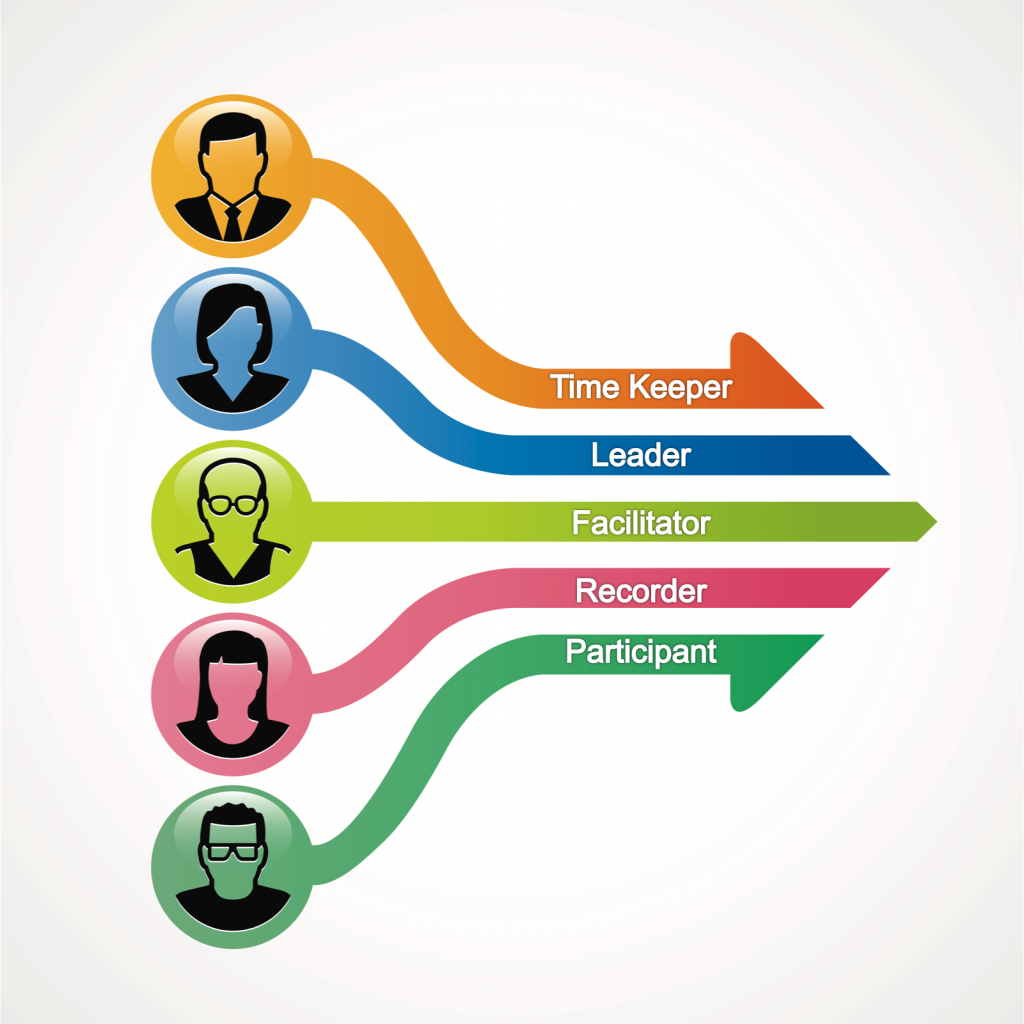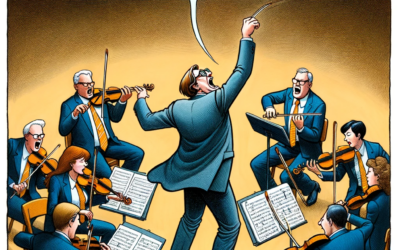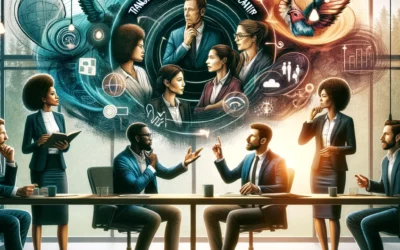The nomenclature of “Leader”, “Facilitator”, “Recorder”, “Timekeeper” and “Participants” is common in meeting literature. What is uncommon is a full description of each role and why it is important.
At CO2 Partners, we work with clients to determine effective meeting best practices on a company by company basis. This includes helping clients outline the responsibilities of the leader vs the facilitator of meeting (and other meeting roles), effective facilitation techniques, and how they relate to productive meetings. Use our guide below to get more from your meetings and save time by learning the role of each meeting member.
Facilitator of Meeting’s Role and Others & Their Important Responsibilities
The Meeting Leader’s Role
Team leaders have a vast array of responsibilities, but meetings are one of the most crucial ones when it comes to employee morale and efficiency. The leader should be the conveyor of the meeting: they schedule it, start it, and express their desired outcome.
The leader initiated the meeting for a specific purpose, but should keep in mind that it’s important to come off as approachable and open to feedback (something we often coach managers and executives on).
At the beginning of the meeting, the leader should strive to follow these 4 steps to set a positive precedent and ensure everyone is on the same page:
1) Express Appreciation: Let participants know that you appreciate their participation. If there is time, draw on specific contributions to make each participant feel good.
2) Unite the Team: Explain why everyone belongs at this meeting. People want to understand why they are important to the group. Don’t leave an individual or subgroup out; you will find that you will quickly lose their participation in the meeting if you do. If they feel snubbed, they might even actively work against you.
3) Share a Vision: Connect the purpose of this specific meeting with the larger organizational purpose.
4) Provide Direction: Explain who will be facilitating the meeting and why that choice has been made. If you want the group to decide on the facilitator, tell them in advance that this will be their responsibility so that they come prepared to make this decision.
The Facilitator of Meeting’s Role
We are often asked about facilitator of meeting: “What is a meeting facilitator and why do we need one?”
The facilitator of meeting is in charge of facilitating the flow of the meeting, to make sure it runs smoothly and covers the main agenda items. A good facilitator will make sure everyone listens, stays on topic with the agenda, knows their roles, and feels included in the process.
Why should the facilitator be separate from the leader?
Like an orchestra conductor, the facilitator of meeting tries to get participants to understand their roles and work for the good of the whole. That’s why it’s important for the facilitator not to be the leader. When leaders act as facilitators, they tend to dominate meetings.
The meeting no longer feels like a symphony, it feels like a solo — with the leader simply just talking to the team. In these meetings, participants don’t feel inclined to contribute or collaborate. They feel like they must listen and endure.
A designated facilitator of meeting will ensure the meeting progresses and goes well. When a meeting goes well, everyone stays on the agenda, understands their roles, feels ownership, listens to others, and makes key and timely contributions.
These are the 3 responsibilities of a meeting facilitator:
1. Keep the Meeting Focused: When the group or an individual starts to wander away from the agenda, rein them back in.
2. Reduce Confusion:
- Provide a clear and concise agenda in a timely manner.
- Arrive early to the meeting to answer questions, test equipment, check on refreshments and provide direction
- Make sure that participants understand and adhere to the rules and agenda
3. Keep the Leader or Others from Dominating: Seek to obtain as much valuable input as possible (including minority voices) before closing down a discussion. You may invite quiet participants to speak, respectfully ask the current speaker to wrap up, or call for a vote when the group is divided (perhaps by using some of the new and innovative tools provided by Turning Technologies and Group Mind Express).
The Meeting Recorder’s Role
The recorder takes the meeting minutes and captures contributions on flip charts if needed.
By having a separate meeting role for the recorder, the facilitator and participants can stay with the conversation and not be distracted by taking notes. The recorder holds more power, however, than people often realize. If you are interested in learning more about best practices for this role, please read our rules for better minute-taking.
The Timekeeper’s Role
Because facilitators of meetings are often occupied with keeping the discussion moving forward, they may lose track of time. A timekeeper ensures too much time isn’t spent on one agenda item. When the timekeeper notifies everyone that time is up, the facilitator and leader can decide whether to work through a particular barrier or put the item in the “parking lot.”
Meetings cost money because time costs money. If the leader and facilitator have a sense of the cost per minute of all the participants’ time, they can use that figure to decide how much time to spend on each agenda item. The timekeeper can remind participants of the Time-Is-Money Meter when they’re spending too much time on a topic that has low monetary value.
The timekeeper should give a 5-minute warning prior to the end time on agenda items and a 10-minute warning before the meeting ends. This allows the facilitator to wrap up the current discussion and enough time to provide a cool-down question for the team.
The Meeting Participant’s Role
Participants were chosen because of their knowledge, skills, and responsibilities. If the leader has chosen them well, they will be prepared for the type of meeting (decision making, informational, creative/brainstorming, motivational, implementation planning) and bring important skills and suggestions to the table. In general, the greater the cognitive diversity of the group, the more effective the results will be.
Whether they’re visionaries, strategic thinkers, critical thinkers, systems thinkers, or practical/tactical thinkers, participants need to:
1. Read the minutes from the last meeting and any attached reports thoroughly before the meeting. Prepare questions and concerns, and, time-permitting, send more significant questions and concerns to the group in advance.
2. Come prepared to report on actions for which they are the DRI (Directly Responsible Individual).
3. Keep an open mind and listen thoughtfully to others.
4. Connect what they say to the overall purpose of the meeting and/or the vision and mission of the organization.
How Leaders or Facilitators Can Improve Their Meetings
Meetings generally go one of two ways:
Effective and efficient, with new tasks and objectives for individuals or the entire group.
Wasted time with nothing decided upon and no clear direction.
Not sure which meetings you’re running? Or wondering how you can improve your meeting efficiency and get more from your team?
At CO2 Partners, we make your role as a leader, manager, or facilitator easier by helping you understand how to maximize your meeting time and uncover employee competencies. Learn how you can support your team to drive their full potential by taking our team leadership assessment.
At CO2 Partners, our expertise extends beyond just identifying these roles. We delve into the subtleties of each position, ensuring that your team meetings are not only well-organized but also aligned with your organization’s broader goals. Our approach is not just about getting through an agenda; it’s about creating an environment where every participant feels valued, heard, and motivated to contribute meaningfully.
Are you ready to transform your team meetings into dynamic, effective, and engaging sessions that drive results? Let’s explore how we can tailor our coaching and facilitation techniques to fit your unique organizational culture and goals. Schedule a conversation with a CO2 Coaching coach or facilitator today, and let’s start a journey towards more productive, inspiring, and efficient meetings. This is more than just a meeting about meetings; it’s a step towards elevating your leadership and unlocking your team’s full potential. Reach out now, and let’s make every meeting count!
Related Posts
How to Prepare for a Meeting: Steps #1 & 2
How to Prepare for a Meeting: Step #3




